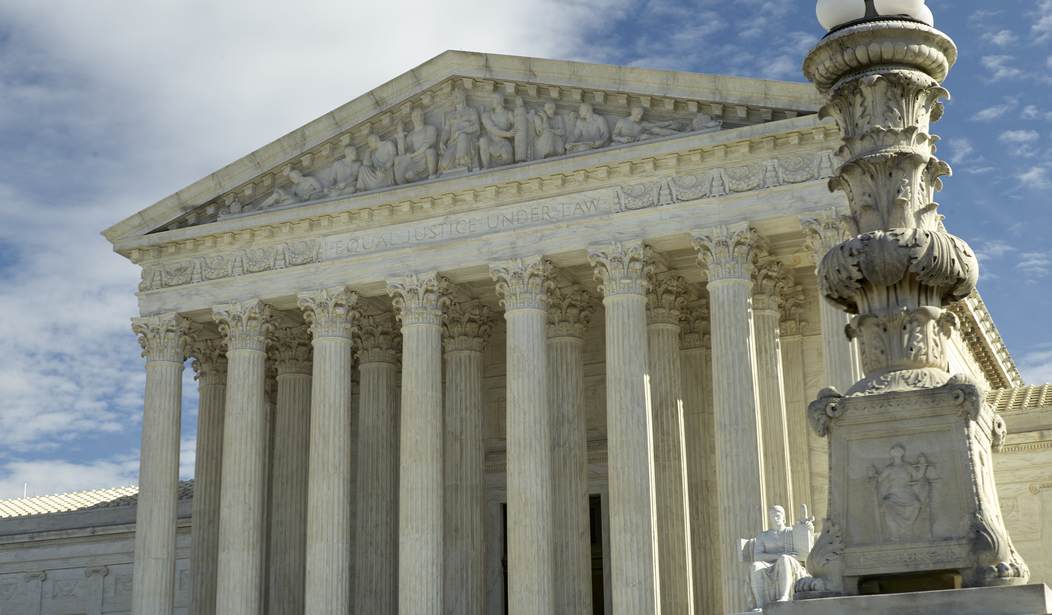Amidst a push by the Left to pack the Supreme Court full of anti-gun justices appointed by President Joe Biden and a number of high-profile shootings around the country, SCOTUS once again sidestepped an important case dealing with the right to carry on Monday morning, while also rejecting two cases involving non-violent felons who were hoping to have their rights restored.
The Court has been considering whether or not to grant cert in New York State Rifle & Pistol Association v. Corlett for several weeks now, and a good chunk of the Second Amendment community has become increasingly skeptical that the Court will accept any case dealing with the right to keep and bear arms, even with the addition of Justice Amy Coney Barrett to the bench.
That skepticism is likely to increase thanks to other actions the Court took on Monday, denying cert in cases called Folajtar v. Garland and Flick v. Garland. As the Cato Institute explained the Folajtar case:
Lisa Folajtar pled guilty in 2011 to federal tax fraud, a felony, which is punishable by up to three years’ imprisonment. She was sentenced to three years’ probation, including three months of home confinement. She also permanently lost her right to keep and bear arms.
According to federal law, a person convicted of a “a crime punishable by imprisonment for a term exceeding one year” is prohibited from possessing any firearm or ammunition. Folajtar wants to obtain firearms and ammunition to defend herself and her family within their home as well as a Federal Firearms License for Archery Addictions, LTD, a Pennsylvania corporation of which she is president.
She filed suit in federal court challenging the law as it applied to her, arguing that her Second Amendment rights should not have been stripped because she did not pose a threat to public safety. A divided panel of the 3rd Circuit rejected her constitutional challenge. The majority endorsed a test used by several federal appeals courts which limits the Second Amendment to “virtuous” citizens—citizens who have not committed a serious criminal offense. The Court concluded that Congress’s designation of her offense as a felony indicated that Folajtar’s offense was serious.
The case of Flick v. Garland similarly involves a non-violent felon who lost their right to keep and bear arms. According to the cert petition filed with the Court, back in 1987 “Ken Flick was convicted of criminal copyright violation and smuggling for importing counterfeit cassette tapes.”
Flick served a four-and-a-half month sentence in a halfway house, successfully completed community service and probation, and made restitution to the Recording Industry Association of America. Flick has no other criminal record. A notable inventor, Flick is a peaceful, law-abiding citizen active in philanthropic, religious and civic affairs. Yet on account of his counterfeit cassette tape convictions, 18 U.S.C. § 922(g)(1) permanently bars Flick’s possession of firearms.
These seem like cases tailor-made for Justice Barrett, who has previously opined in a case called Kanter v. Barr that a non-violent felony conviction should not automatically result in a lifetime loss of the right to keep and bear arms. And in fact, Barrett may very well have wanted to take the Folajtar and Flick cases, but couldn’t get three of her colleagues to join her. While we don’t know the specific reason for the Court’s denial or even how many justices wanted to hear the case, it’s both disappointing and troubling to see SCOTUS shy away from the issues raised in Folajtar and Flick.
Meanwhile, it’s likely that the New York case will be re-listed once again, but as each week goes by without any action from the Court the unease of gun owners is likely to increase. The right to carry case is centered around the state’s requirement that applicants for a concealed carry license must demonstrate a justifiable “need” to carry, and a general right of self-defense isn’t seen as a good enough reason for the vast majority of issuing authorities in the state. As a result, the average New Yorker simply can’t exercise their right to bear arms, even if they’re a legal gun owner.
While it’s not unusual for a case to be re-listed in conference, even multiple times, the fact that NYSRPA v. Corlett is still hanging around while the Court is denying cert in other 2A-related cases is sure to cause consternation and concern for supporters of the right to keep and bear arms, even though this isn’t the only case dealing with the right to carry that the Court will have the chance to accept in the coming months. A case out of the Ninth Circuit Court of Appeals upholding Hawaii’s ban on open carry and ruling that the Second Amendment doesn’t protect a general right to carry should arrive at the Supreme Court in the coming weeks, and the Court is also expected to consider a challenge to New Jersey’s carry laws called Russell v. New Jersey, but it will be several months before SCOTUS will hear that case in conference.
I’m somewhat surprised that neither Folajtar or Flick were granted cert by the Court, and I can’t help but see it as a troubling sign that SCOTUS may be trying to bypass cases that involve the Second Amendment. I’m also surprised that Barrett herself didn’t any kind of written dissent from the decisions, especially given her forceful statements in Kanter v. Barr, and I’m not as optimistic as I was a couple of weeks ago that SCOTUS is going to step in and grant cert in any of the upcoming carry cases either.









Join the conversation as a VIP Member